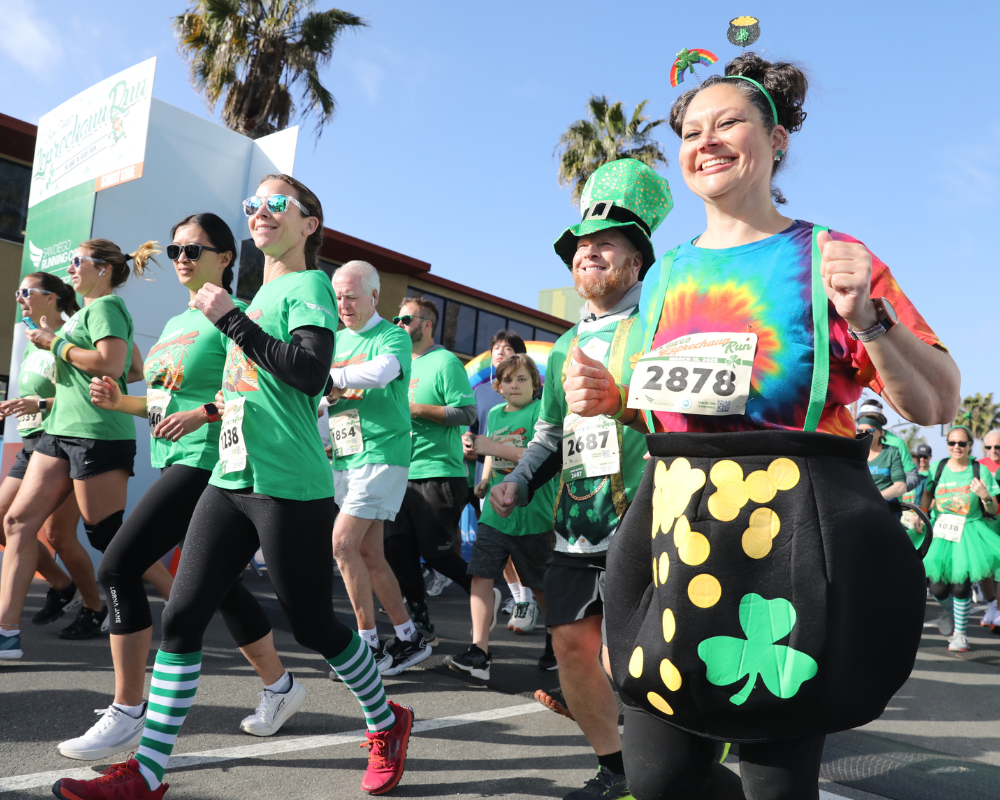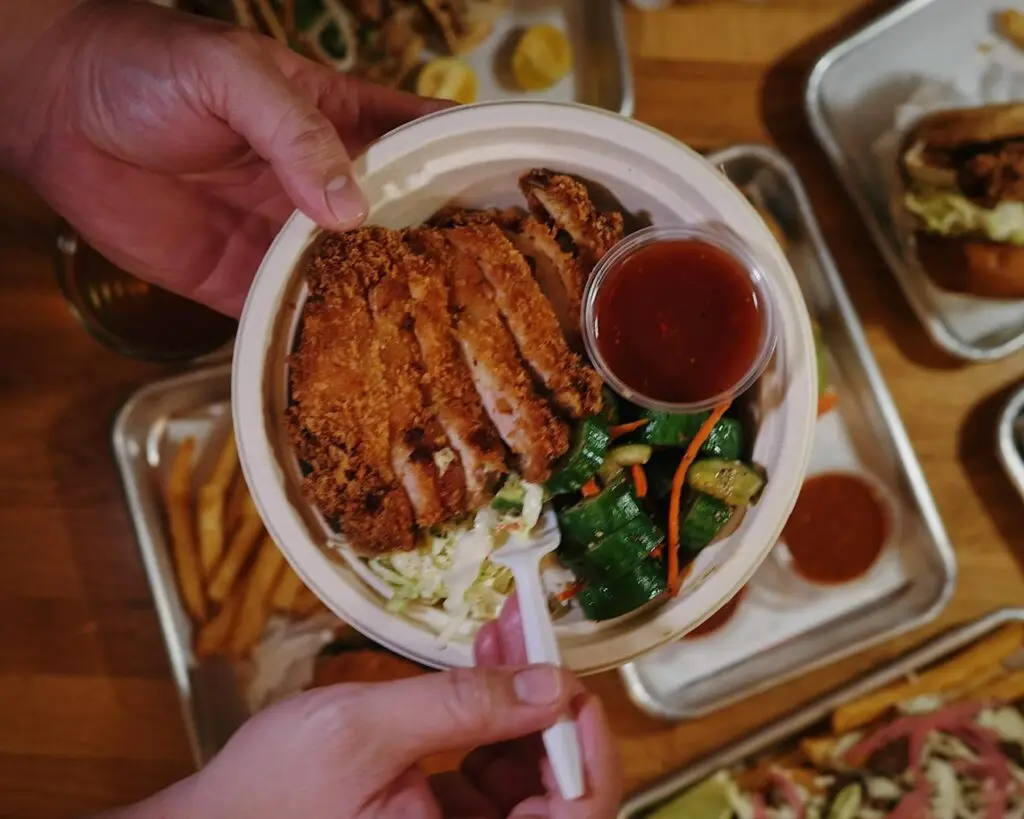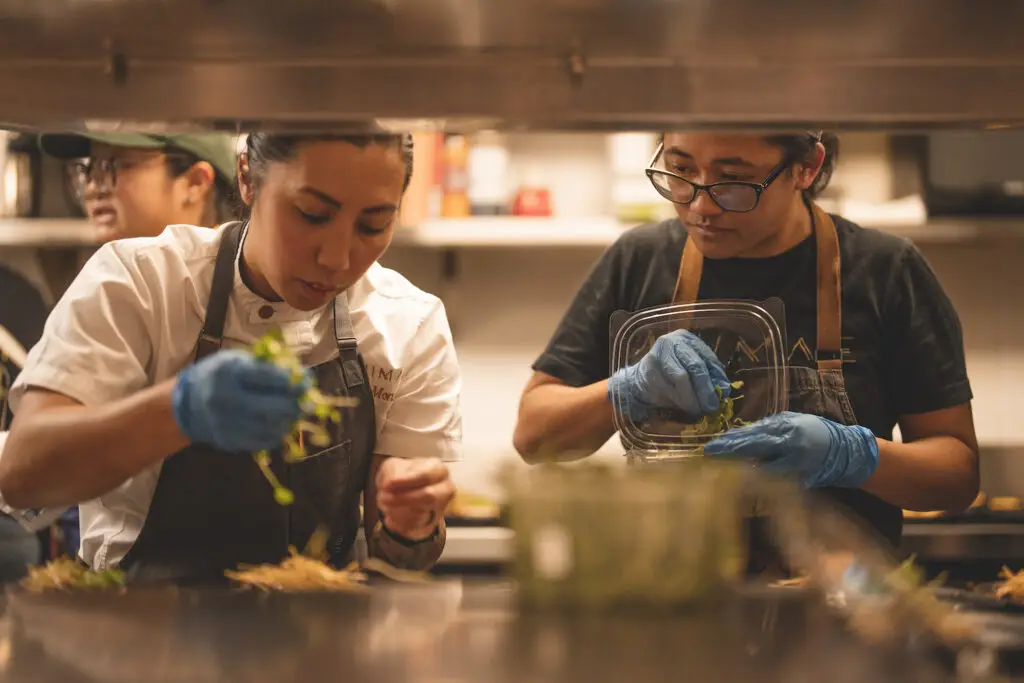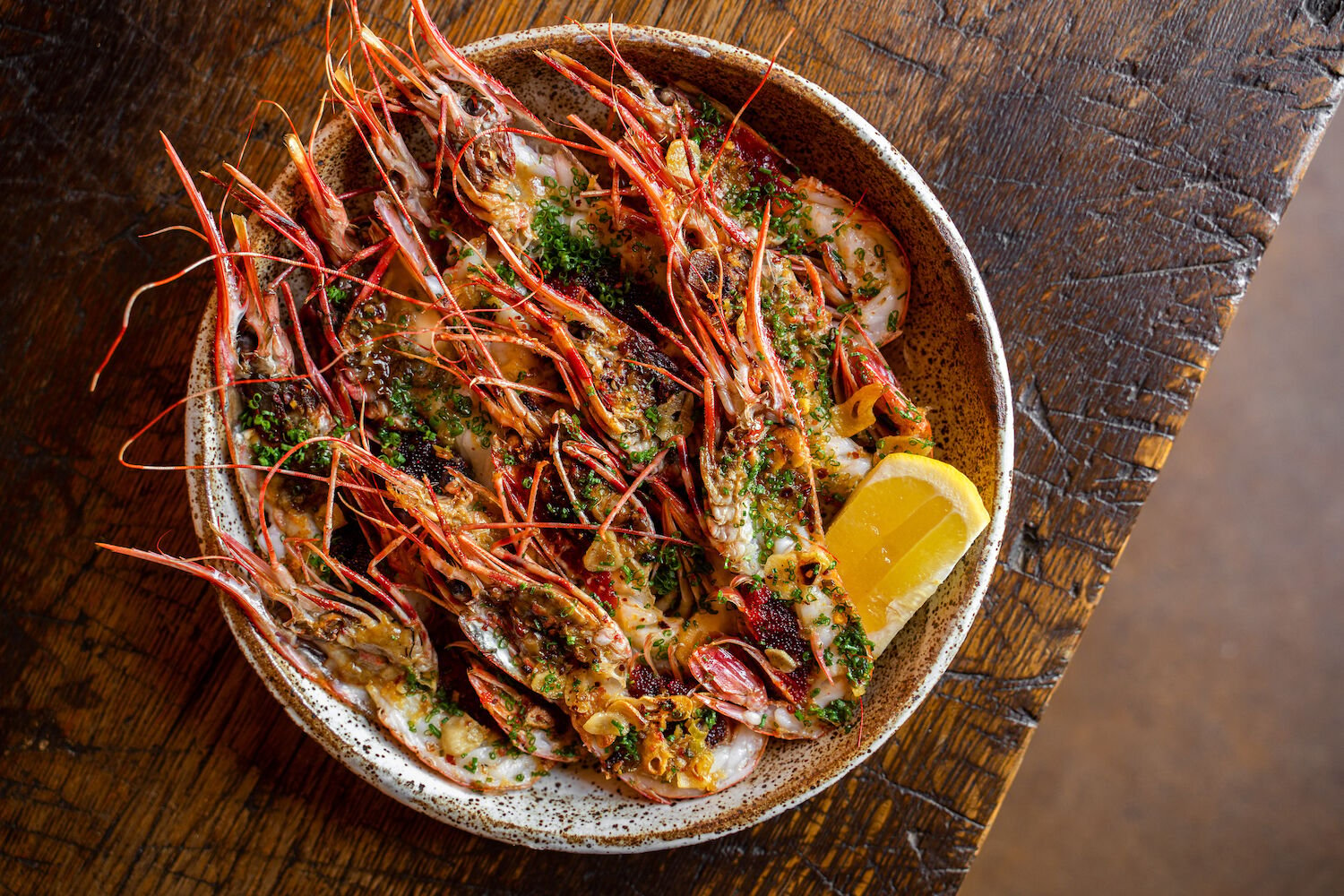
Spot prawns in ginger-scallion-chile oil, caught by local fisherman Shane Slaughter.
Kimberly Motos
Seafood is roulette. Off the right boat into the right hands, it can taste as if it’s somehow better than food, one level above the very idea of it. Off the wrong boat into the wrong hands, it can make vegans. I can still access that high from my first king crab leg (I was eight, grandma’s birthday, clip-on tie), that first seared scallop in brown butter, white meat delicate as an apparition. But I also remember the first time I tasted the anti-miracle of swordfish turned into particle board, how swallowing became a form of trauma. Bad sushi doesn’t come out of the drapes.
You rarely hear an omnivore say they “can’t stand steak.” But plenty of them flinch at the notion of tuna. A tray of oysters makes some wonder if we truly need oceans. That’s because even a not-great steak tastes OK. A not-great fish tastes and smells like the food is actively trying to repulse you, a postmortem defense mechanism on behalf of its species. Trained chefs can look at fish and tell how good it is (clarity of the eyes, freshness of the skin). But running at breakneck restaurant speed, lesser fish still occasionally get through and, poof, tongue trauma.
Fifteen years of studying food and eating at San Diego restaurants, and the two meals at The Fishery were the single most excellent seafood experience I’ve had in the city. Not one off note. Right boats, right hands.
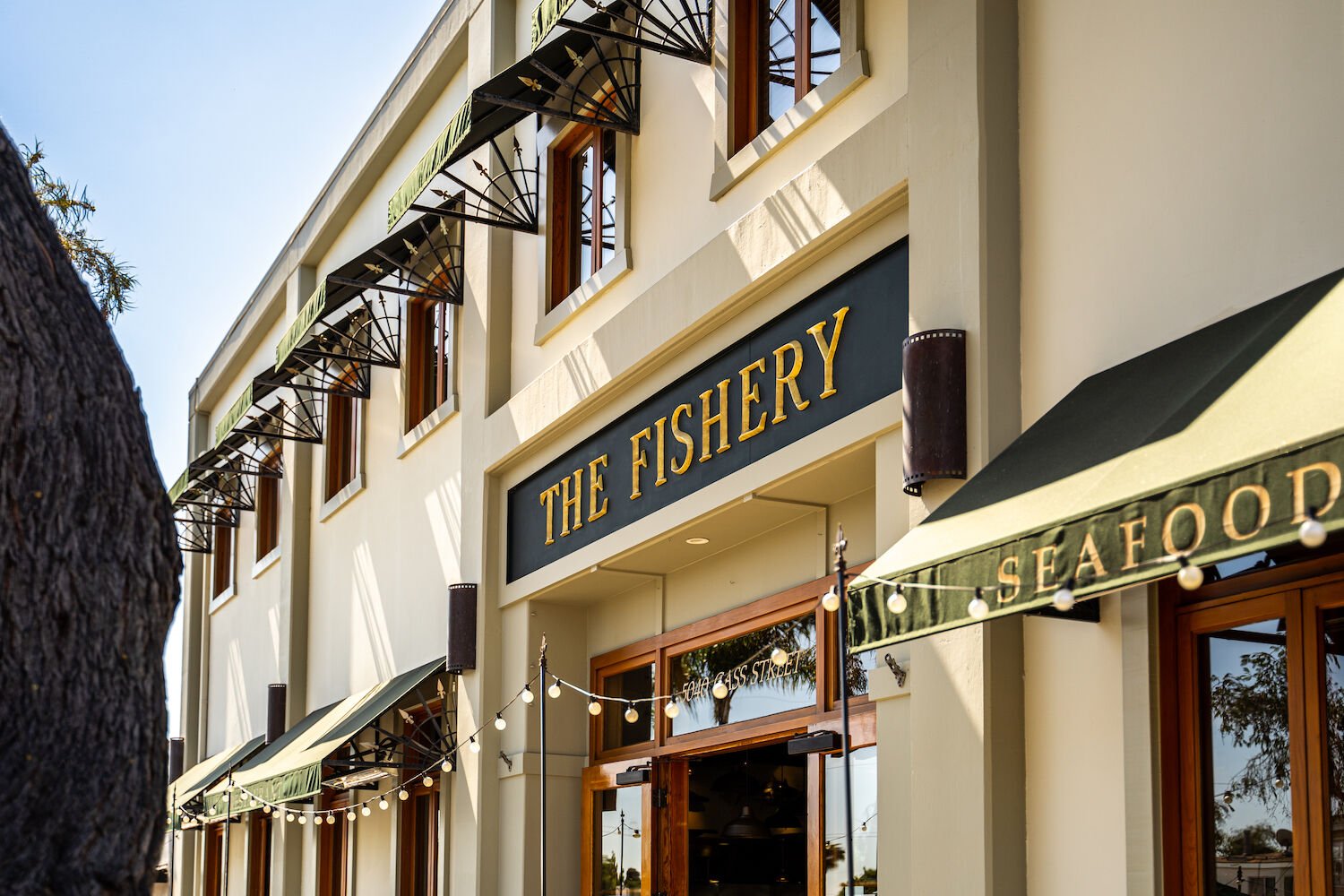
The Fishery up front, their seafood company Pacific Shellfish out the back on Cass Street.
Kimberly Motos
It’s easy to understand why. This restaurant didn’t start as a restaurant. The seeds of it started in 1980 when fourth-generation La Jollan fisherman Judd Brown opened his own seafood company, Pacific Shellfish. From local boats, from planes and trucks, he hauled minor mountains of wild-caught seafood into a room, cleaned and cut them, then loaded them on trucks for local restaurants and hotels. He was good at it. And in 1996 he and his wife Anne Marie took over an old warehouse in the one quiet area of Pacific Beach to open this restaurant that doubled as a fish market. For decades, it seemed the only thing to eat in the party zone of Pacific Beach was Jägermeister. Tucked in the alcoves around Garnet Ave’s eternal spring break, a few good cooks did serious work at hotels, Lamont Street Grill, Gustaf Anders, and The Fishery.
You can taste it in the bowl of mussels—a menu option that can scatter a crowd. They use salt spring mussels from British Columbia (famed for their plumpiness), quickly steamed so they’re still tender and not grade-school erasers, half-submerged in a thin, housemade green curry that’s so bright and fresh it’s drinkable. On the side, whole grain bread from nearby bakery, Wayfarer. Flavor sponges.
You’ll taste the talent in the swordfish dolmas—grape leaves stuffed with small crescent moons of tender sea steak that’s been marinated in a spicy schug (jalapeno, cumin, cilantro, garlic confit, lime juice, olive oil, parsley), then grilled and rested on creme fraiche to cool down the spicy bite, with arugula from local Shaner Farms.
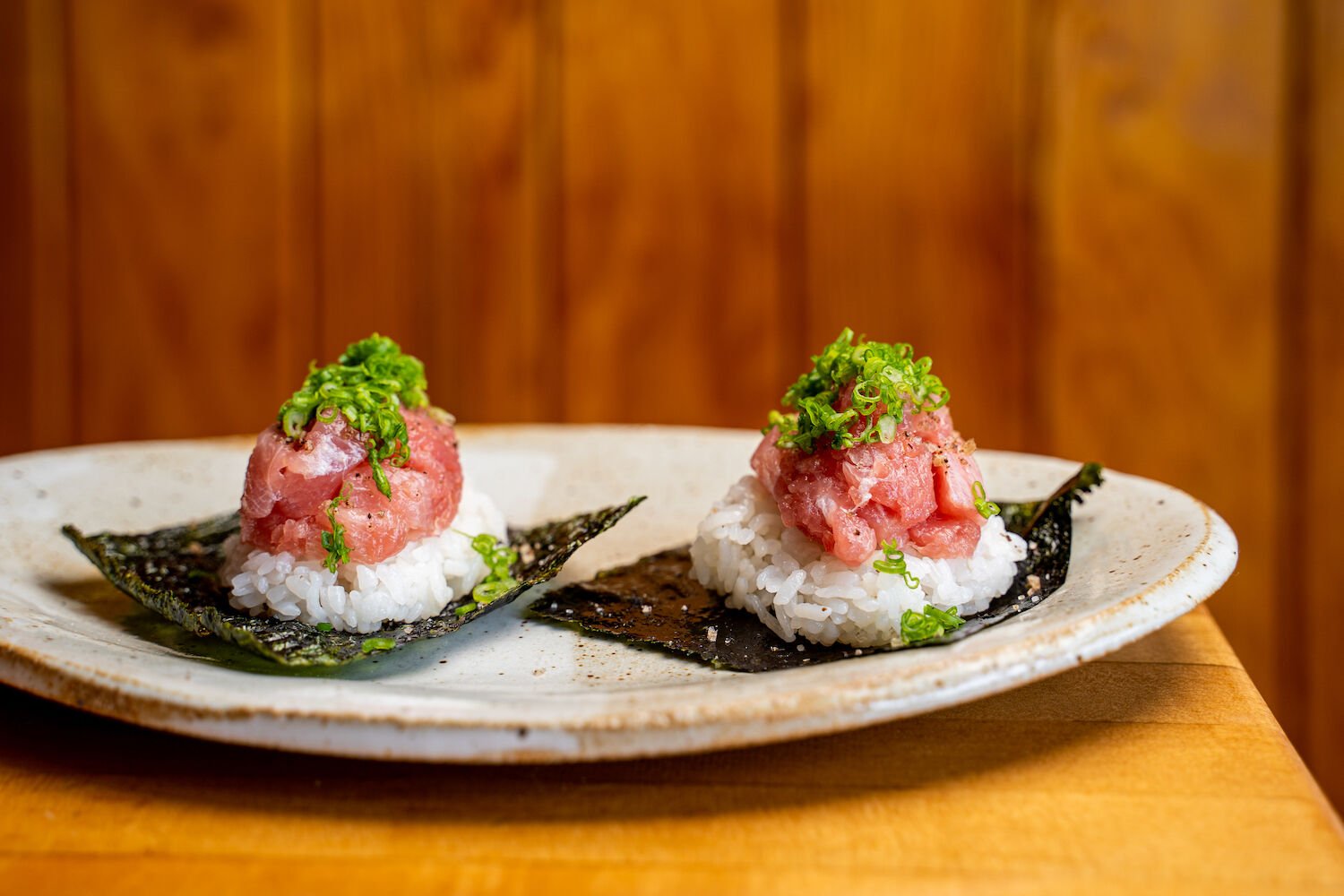
Toro Tacos with sesame grilled nori
Kimberly Motos
The toro tacos are Reidy showing you he doesn’t let ideas get in the way of flavor. Good chefs know when the ingredient is the star and their role is supporting cast. It’s just a tuft of chopped local bluefin toro (belly) with sushi rice, drop of lemon, and smoked soy salt (a dehydrated smoked soy powder they make from the cook’s koji, mixed with sea salt). It’s rare that a piece of seaweed steals the show from bluefin toro, but it does here—a sheet of nori grilled with sesame oil, nutty and crackling and warm.
While looking around at the old fishing photos, the history of the place, I meet a local female winemaker who’s brought her infant daughter and a cold case of the sauvignon blanc she’d like to get on Brown’s list. Two weeks ago, Brown bought a wild caught bluefin from a 16-year-old kid, his biggest catch and biggest sale. It’s that kind of place, a beacon for local makers. Brown says she’ll buy anything with a landing ticket, but the seafood isn’t all local—about 50-50, she says.
The one dish that I’m sure is going to be a miss is the opah burger. Chefs use opah because it’s sustainable—a fish once seen by wildly un-environmentalists as cat food or straight compost. It’s fantastic eating. But fish sandwiches almost always fail. The protein is so delicate that putting it in a sandwich is like putting it into a witness protection program, burying it for good. May as well call them bread sandwiches. Reidy proves me wrong.
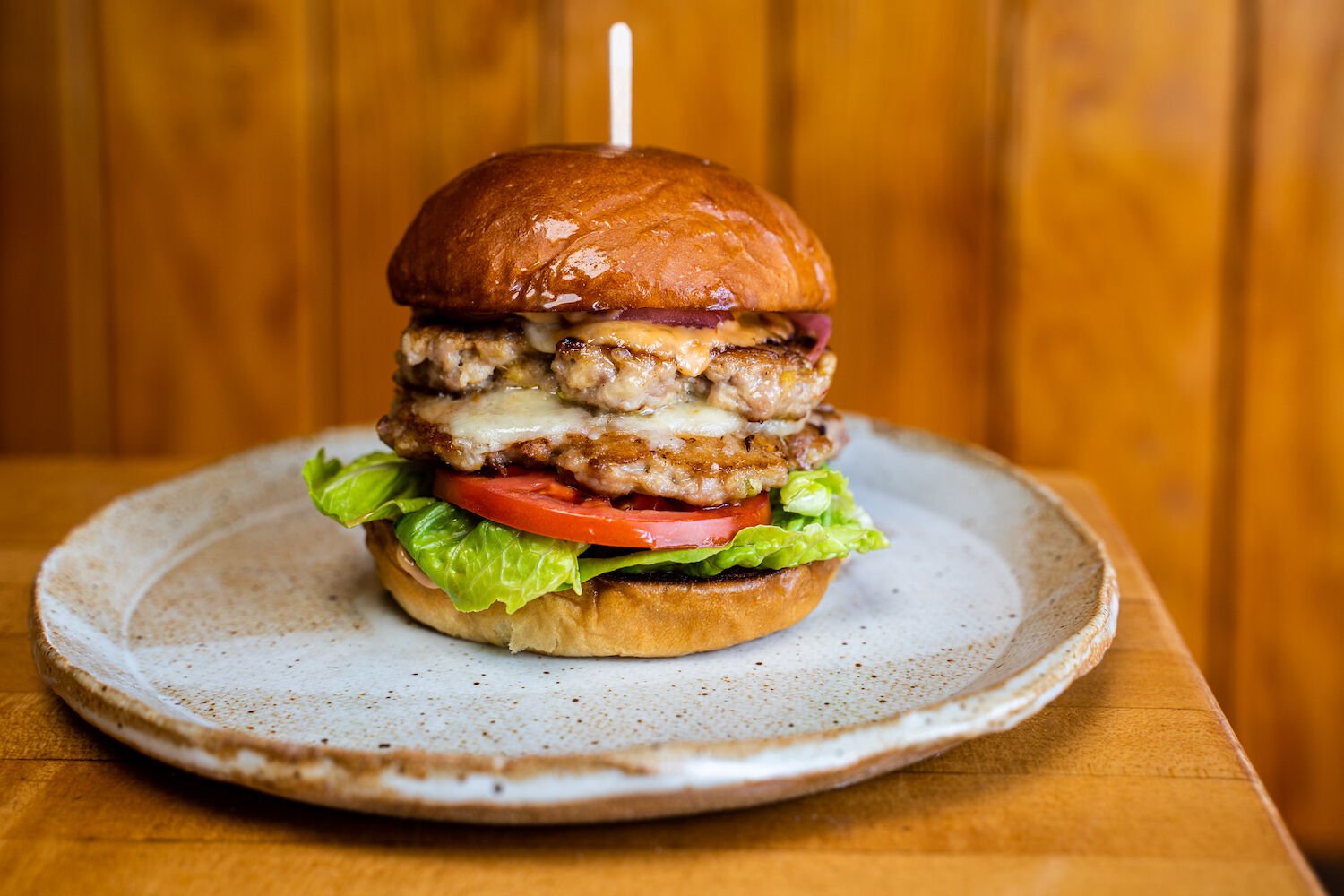
The Opah Burger
Kimberly Motos
He takes the opah’s abductor muscle—firm like flank steak and with high iron content that mimics beef—grinds it up with spices, and it does eat like two stacked ground beef patties. The sauce is an Asian-ish mix of soy, ginger, wasabi, sesame oil, mayo, and ketchup. Yep, mayo and ketchup, that hack from the 80s when your parents weren’t fancy enough to splurge on the Thousand Island. He puts it on Japanese milk bun (so soft and creamy, it’s almost like craft Wonderbread) from Hokkaido Milk Bread, the bakery formed by Matsu chef William Eick.
If you haven’t been to The Fishery in a bit, the bar is doing advanced, fun stuff. Like The Fishery Milk Punch, where they counterintuitively use milk to clarify the cocktail. Slight bits of fat clings to it it in the process. So you have this crystalline pink cocktail—Berto gin, Campari, Bordiga Rosso, dandelion, coconut, chamomile tea—that feels silkier, faintly creamy. It’s an ancient magic trick. Nearing Nirvana looks like radiator fluid in a glass, neon green with Real de Valle blanco tequila, Mandarino (mandarin liqueur), pandan (southeast Asian herb), serrano, and jalapeno. Some bars make spicy drinks that taste like drinking hot sauce, which is not fun. This is balanced and unabusive.
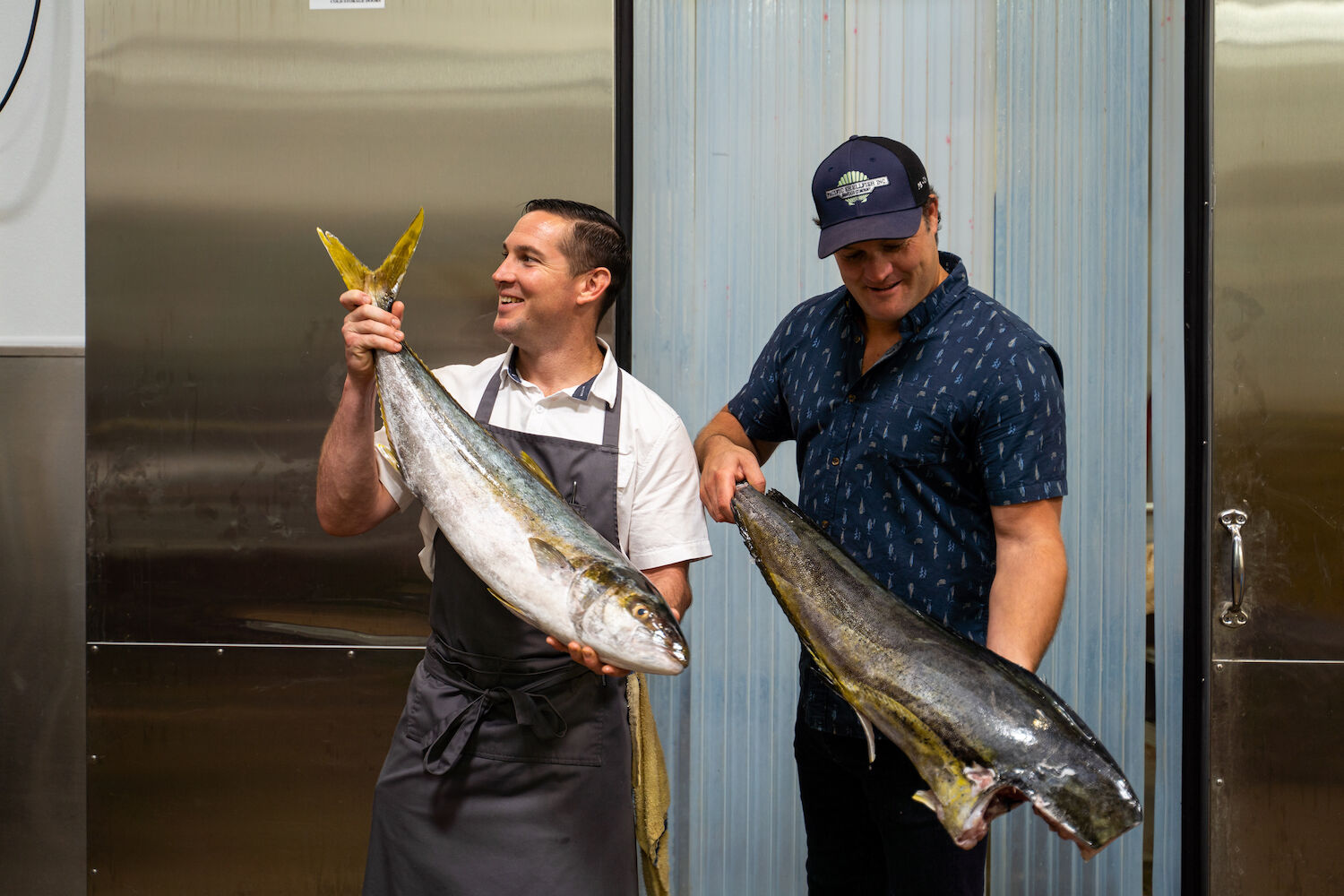
Chef Mike Reidy (left) and co-owner Nick Lorenz.
Kimberly Motos
Spot prawns are our sea Wagyu—one of California’s iconic delicacies, like dungeness crab—caught up near Santa Barbara. Reidy cooks his shell-on (split down the middle) on the plancha, basted with toasted garlic butter and ginger scallion-infused oil. They’re finished in the broiler and topped with chives, chile oil, and finishing salt. They take the butter from the pan and slather it on Wayfarer bread. It looks like nothing, tastes like everything.
The catch of the day is simply pesto and fish. But, oh, that pesto. They take JR Organics broccolini and make it with basil, anchovies, Calabrian chili, preserved Meyer lemon, Parm, olive oil, and garlic confit). That’s the difference between home cooking and restaurant cooking—the confit, the preserved citrus, the details that amplify each ingredient. They don’t sell that pesto at Costco.
Brown and her husband are gearing up for a big remodel, a whole new look. An oyster bar will replace the fish case. Some of the longtime locals who come down here daily from the hills of Mount Soledad might grumble. But it’s time. This was the epic and wildly successful thing her parents built. With the new energy in this menu, at that bar, only right to reset the table for another 25 years.
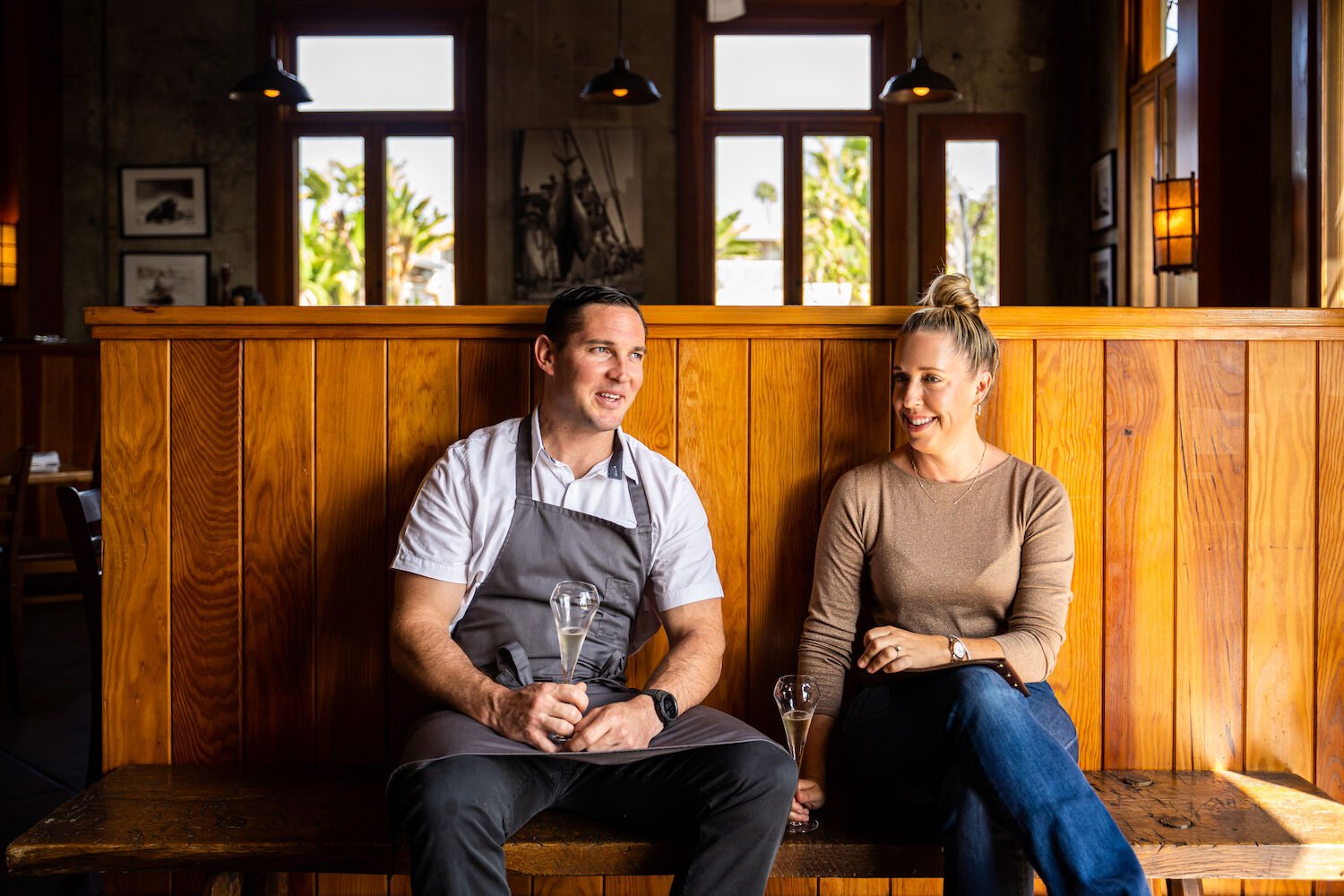
Chef Reidy and Fishery co-owner AnneMarie Brown.
Kimberly Motos
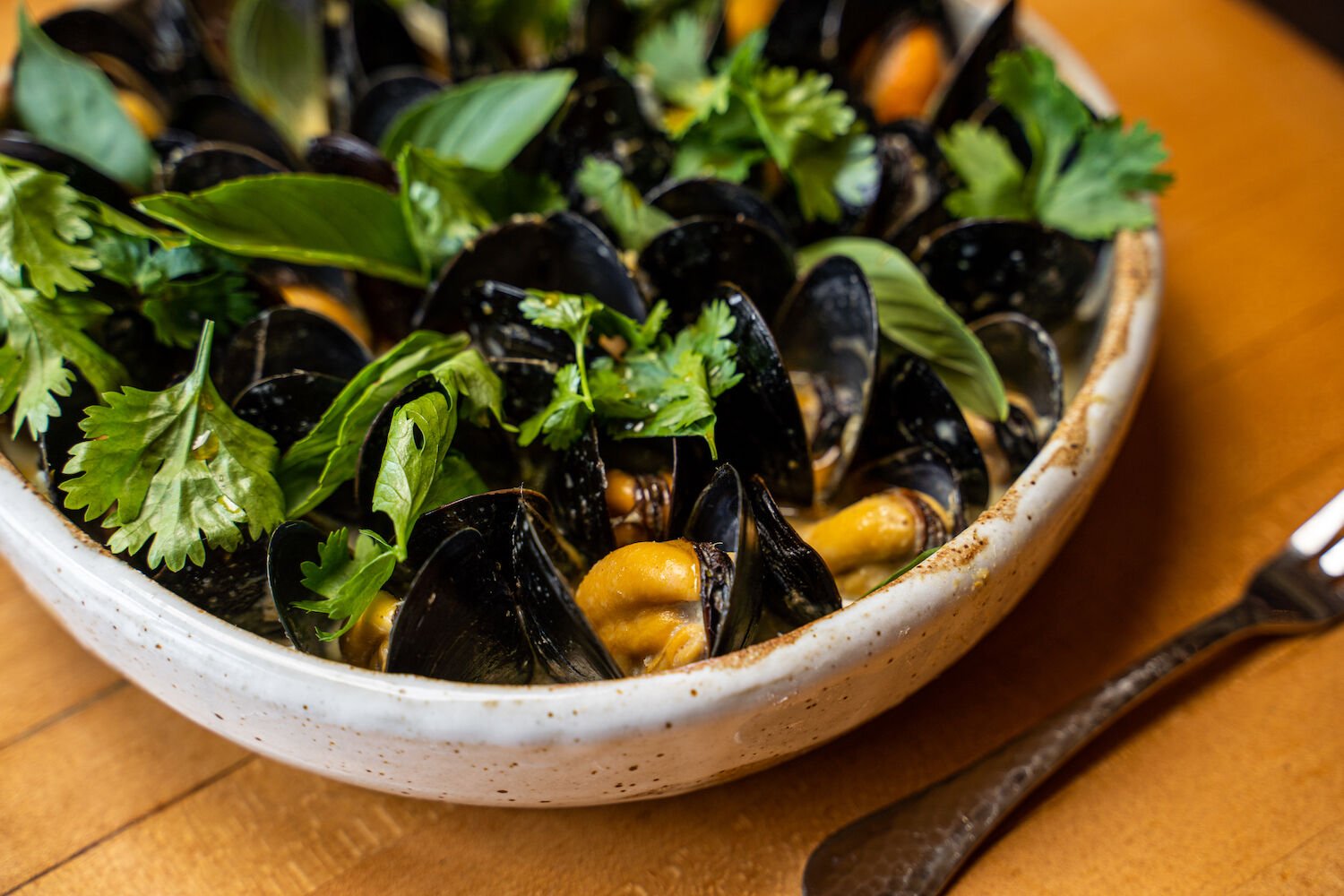
The drinkable green curry broth in these mussels is arguably the star of Mike Reidy’s menu
Kimberly Motos
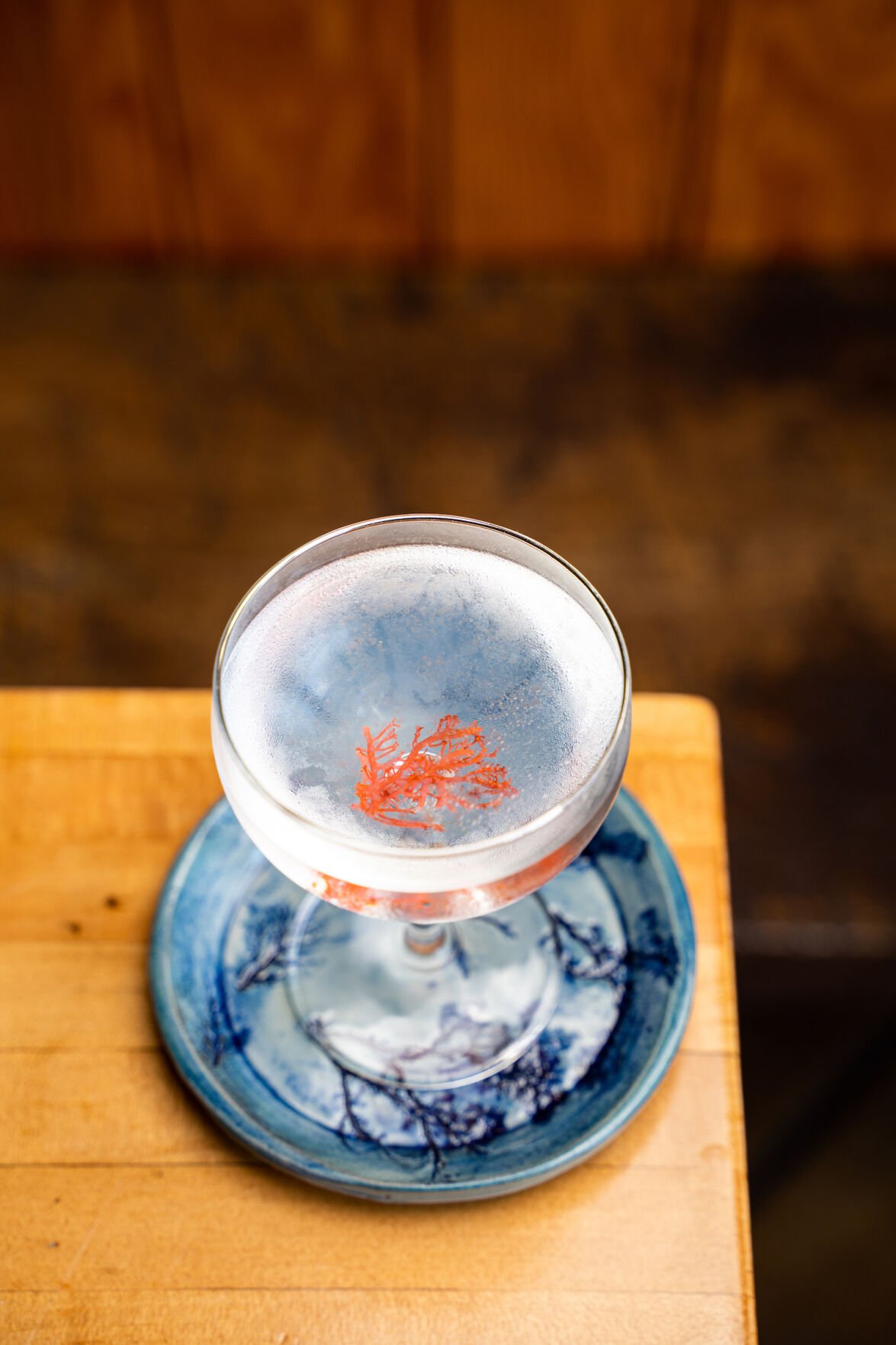
the fishery, cocktail
Kimberly Motos
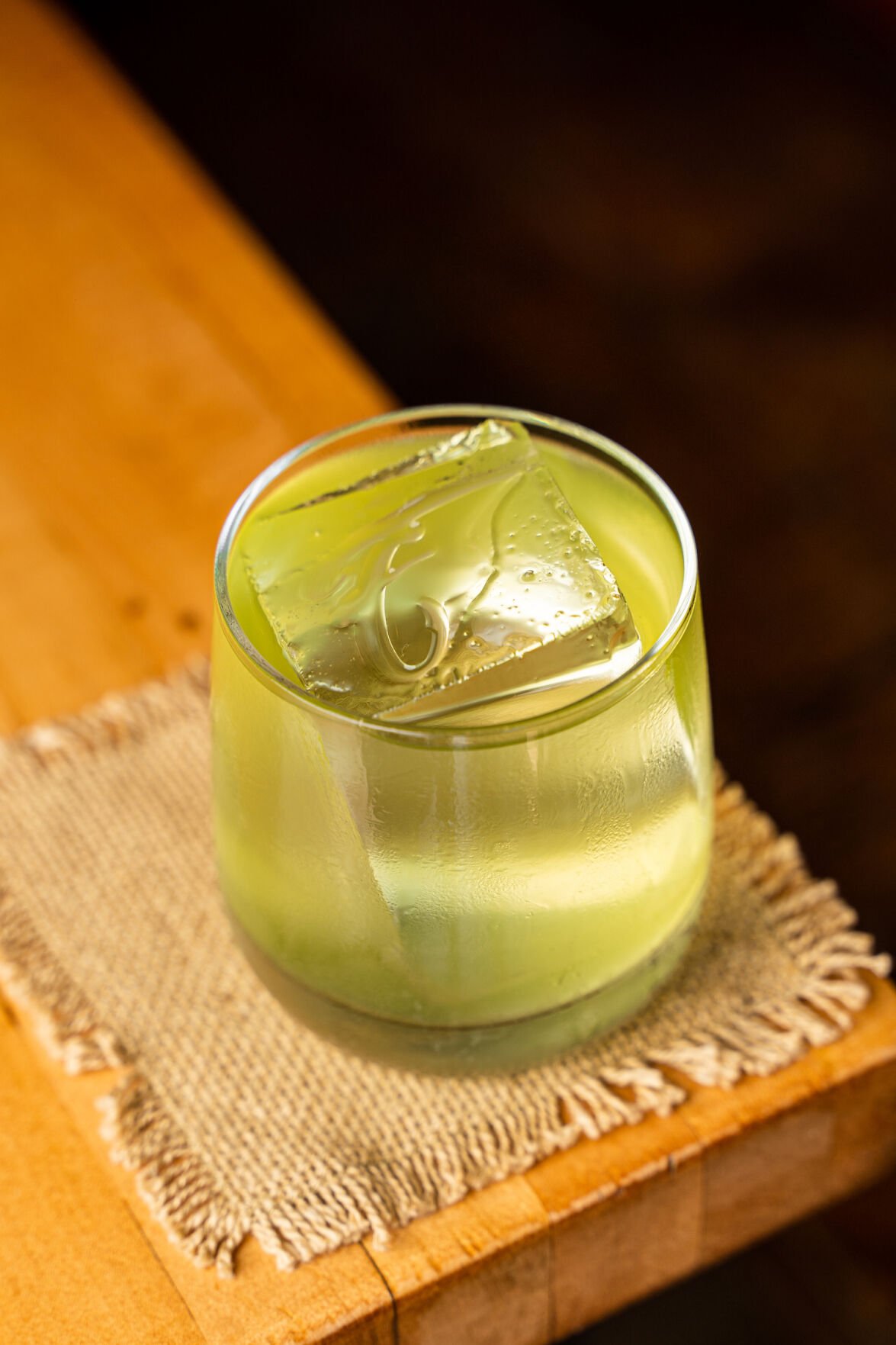
the green tequila cocktail, “Nearing Nirvana”
Kimberly Motos
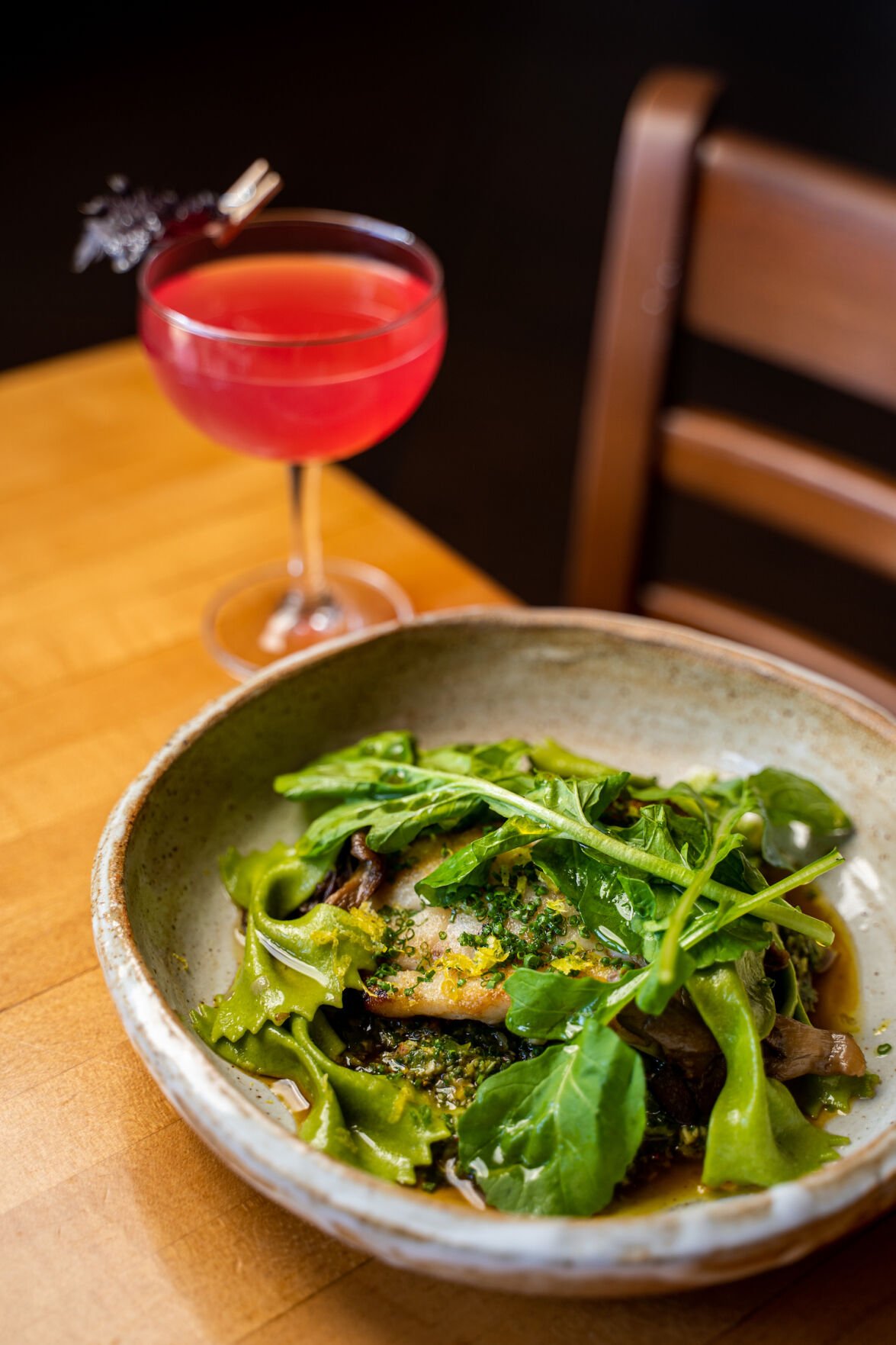
Catch of the day in JR Organics pesto.
Kimberly Motos
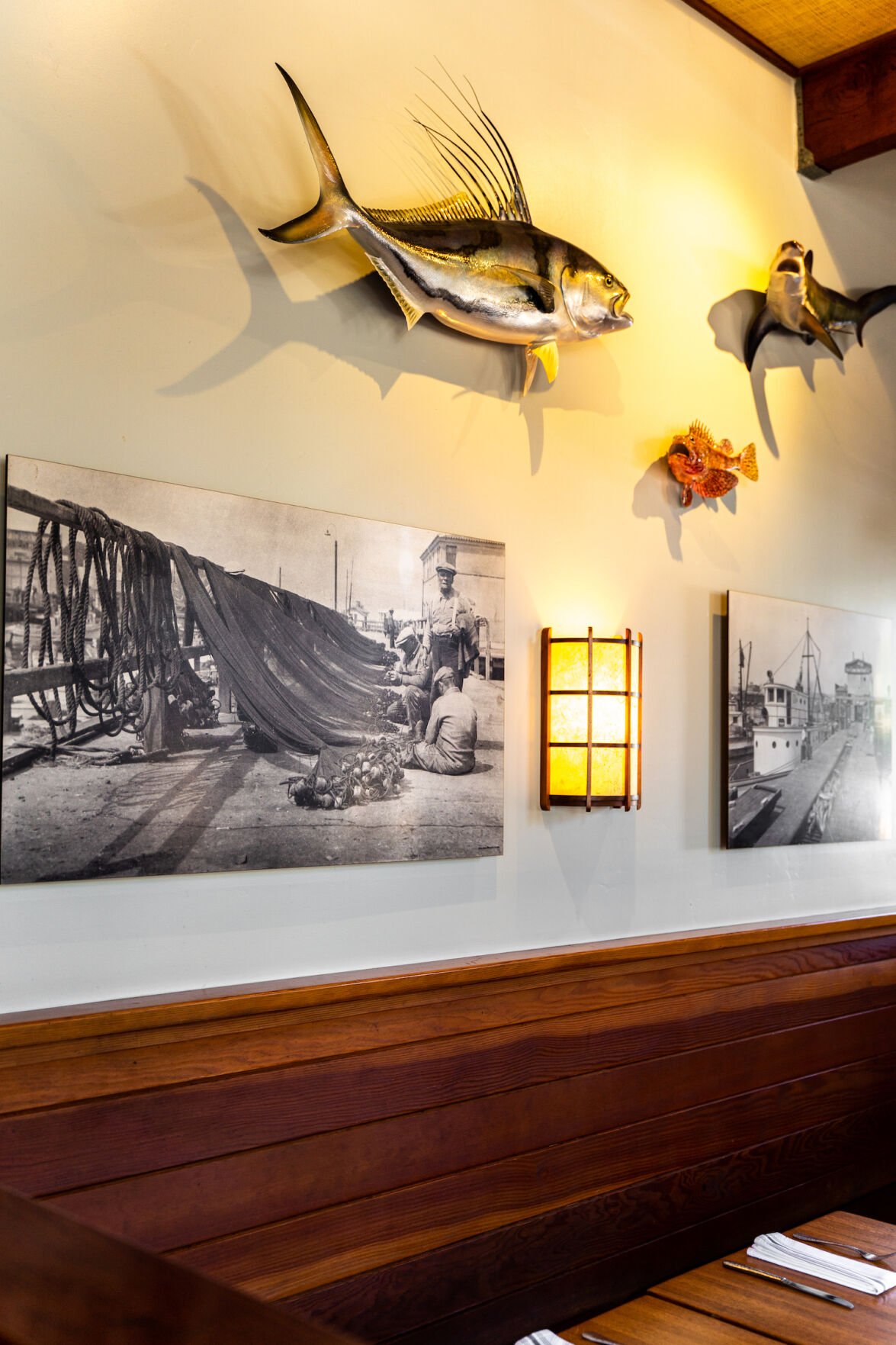
the fishery, wall decoration
Kimberly Motos
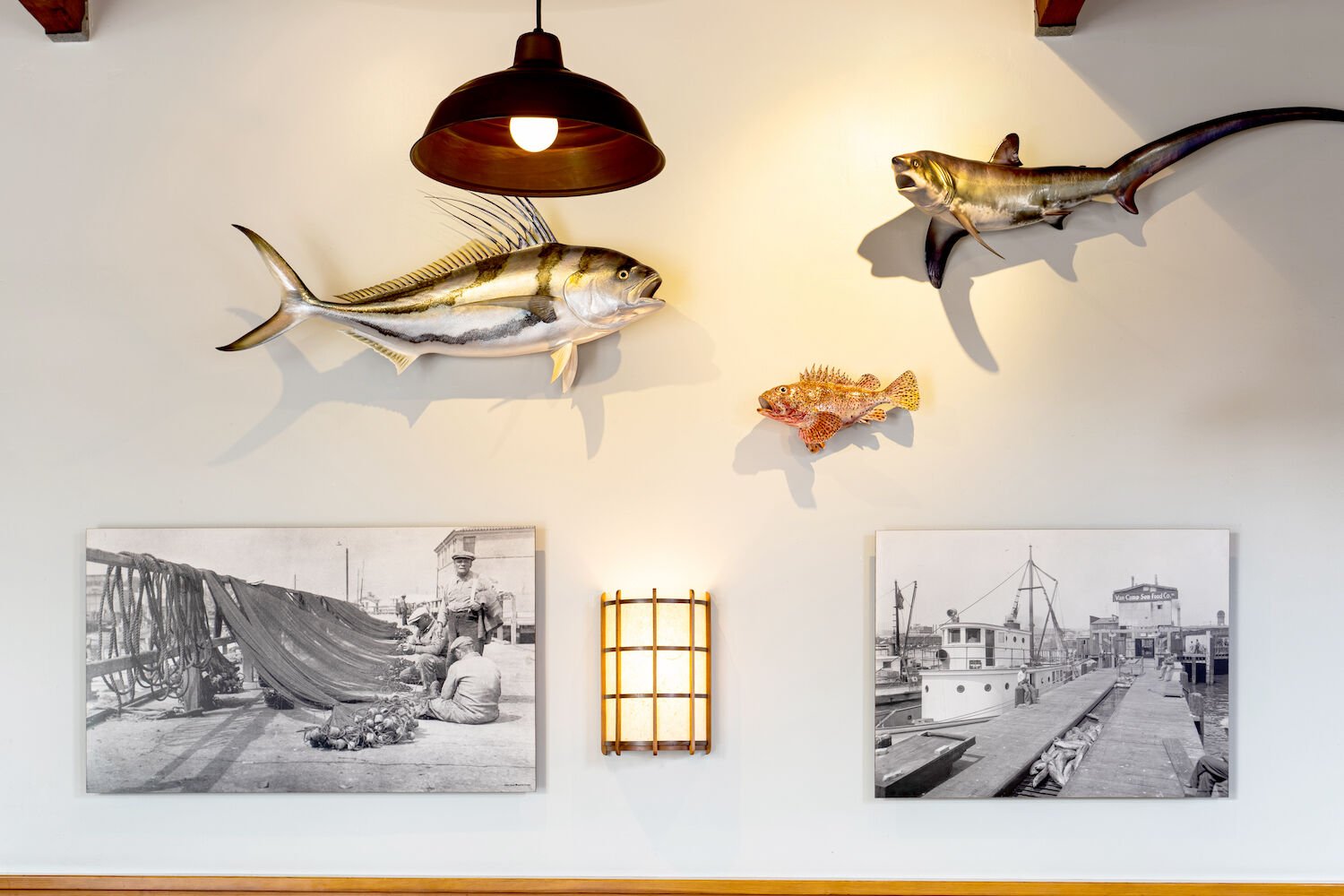
Twenty five years of San Diego fishing history run through this house.
Kimberly Motos
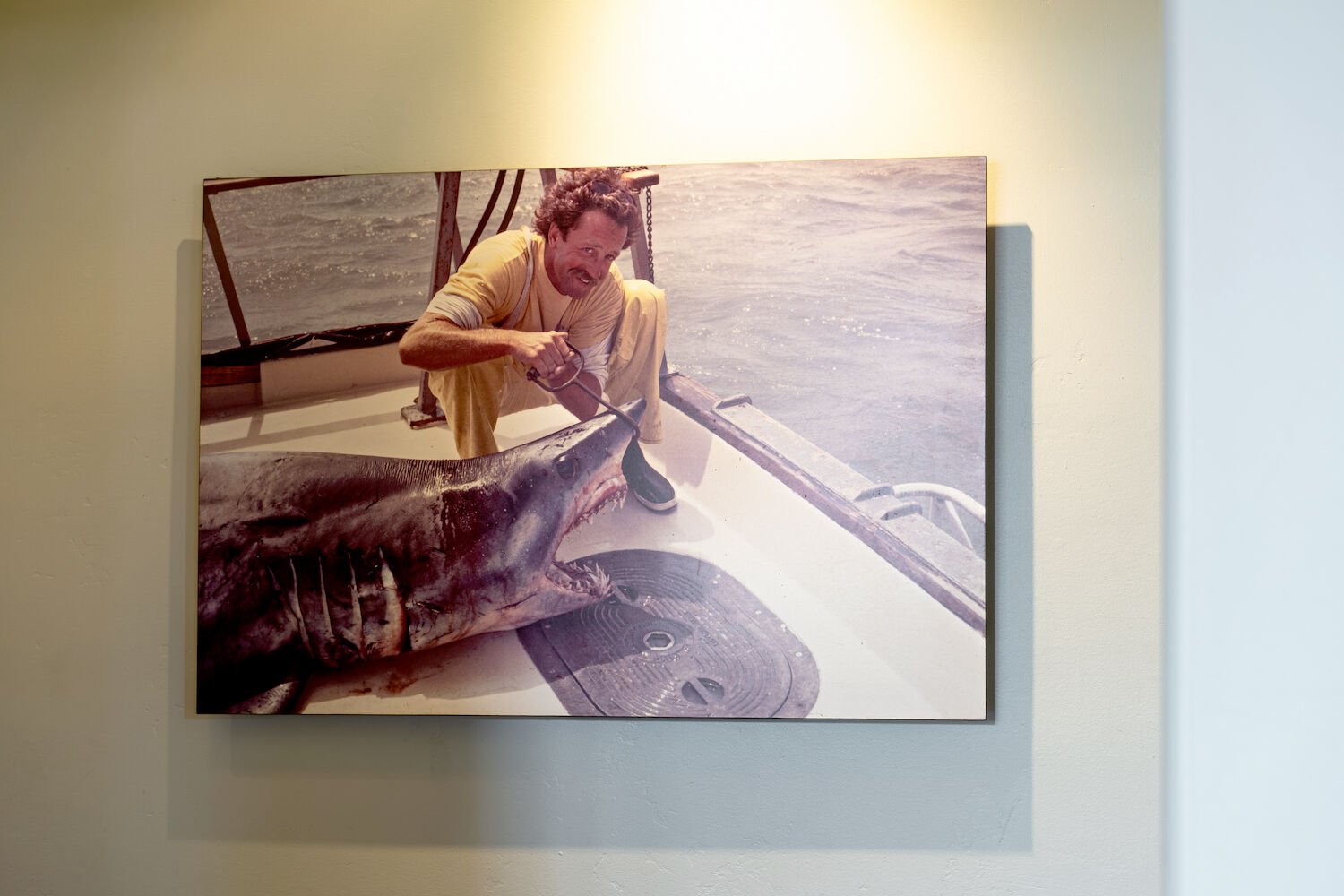
Judd Brown, the fourth-generation San Diego fisherman who started it all.
Kimberly Motos
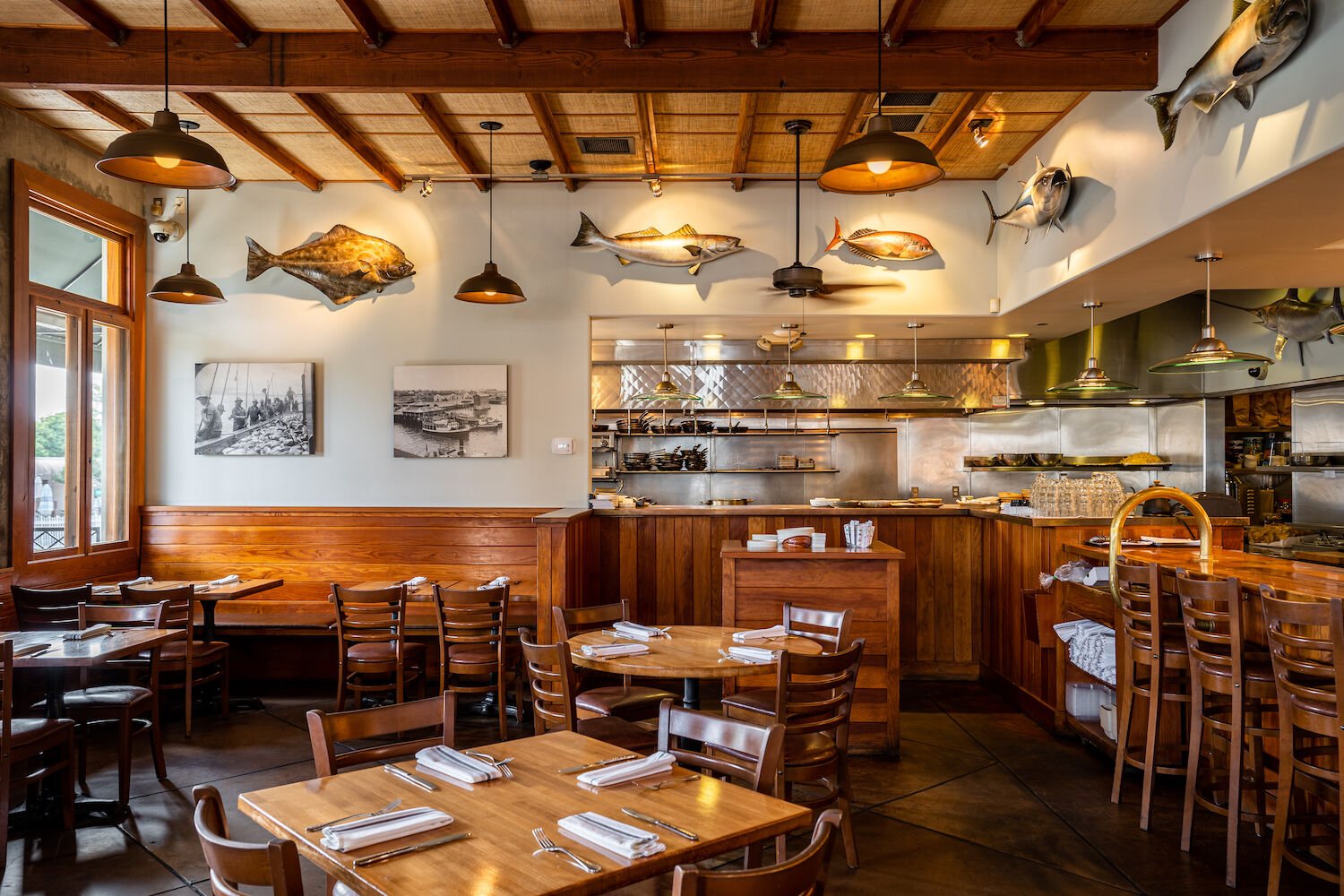
the fishery, restaurant view
PARTNER CONTENT
Kimberly Motos
Have breaking-news, exciting scoops, or great stories about San Diego’s food scene? Send your pitches to [email protected].
